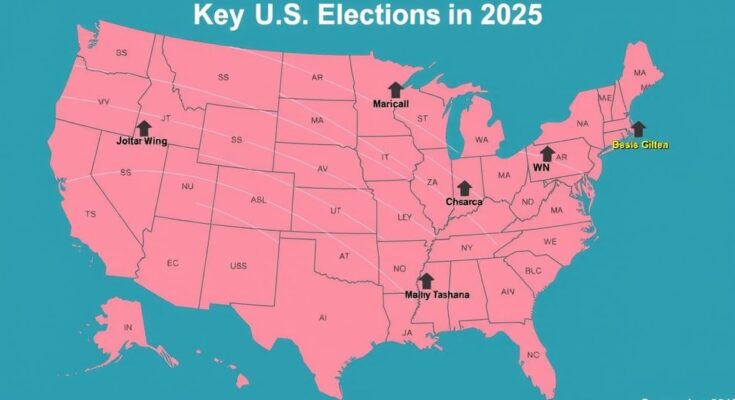In 2025, several nations will conduct important elections, including Belarus, Germany, the Philippines, Canada, and Chile. These elections will address critical issues such as authoritarianism, economic stability, populism, and governance challenges, each carrying significant implications for their future political climates.
In 2025, several nations will hold pivotal elections, albeit not as numerous as those in 2024. Key themes affecting these elections include inflation, the ascendance of populist politics, and geopolitical tensions stemming from ongoing conflicts in Europe and the Middle East. The experts analyzed elections in five countries: Belarus, Germany, the Philippines, Canada, and Chile, discussing the stakes and implications of each electoral contest.
In Belarus, President Alexander Lukashenko, who has held power since 1994, will seek a seventh term on January 26, 2025. The elections lack genuine competition; potential opponents have shown support for Lukashenko’s policies and the political climate continues to be repressive, limiting free expression and participation. A victory for Lukashenko may further solidify Belarus as a Russian ally.
Germany will hold early federal elections on February 23, 2025, prompted by the collapse of Chancellor Olaf Scholz’s coalition government. The key issues are economic recovery post-COVID-19 and strategies to address challenges posed by the war in Ukraine and industrial competition with China. Polls indicate that Scholz faces a difficult path ahead, with the center-right Christian Democratic Union likely to gain strength.
In the Philippines, midterm elections are slated for May 12, 2025. These elections serve as a crucial referendum on President Ferdinand Marcos Jr.’s administration, as local officials, district representatives, and senators will be elected. Marcos Jr. is expected to leverage his influence to secure a friendly Senate majority, which is pivotal for maintaining power amidst increasing tensions with Vice President Sara Duterte.
Canada may see an early federal election before October 20, 2025, due to Prime Minister Justin Trudeau’s declining popularity and governmental instability. Conservative leader Pierre Poilievre presents a formidable challenge, capitalizing on public discontent over inflation and the current administration’s policies. The election may determine Canada’s ideological direction, swinging between progressive and conservative populist governance.
Lastly, Chile’s presidential election is scheduled for November 16, 2025. The incumbent, Gabriel Boric, is barred from re-election, setting the stage for a contest potentially dominated by the right-wing coalition, Chile Vamos. Following two rejections of constitutional reforms under Boric, the political landscape remains contentious, with crime and governance issues at the forefront of voters’ concerns. While polls suggest a shift towards opposition victory, it is not guaranteed, given recent electoral outcomes.
This article evaluates five significant elections set for 2025, focusing on their implications and contexts within global political dynamics. Each country’s political climate reflects an interplay of historical legacies, current governance challenges, and public sentiment influencing electoral outcomes. The importance of understanding these elections lies in grasping their potential to reshape national policies and international relations, particularly in a year characterized by economic strain and geopolitical instability.
The upcoming elections in Belarus, Germany, the Philippines, Canada, and Chile represent critical junctures for each respective nation. As authoritarian tendencies surface, economic instability persists, and political alliances shift, the outcomes of these elections will undoubtedly impact both domestic governance and international relations. Observers must remain attuned to how these contests unfold, as they may signal broader political trends in a changing global landscape.
Original Source: cobbcountycourier.com




